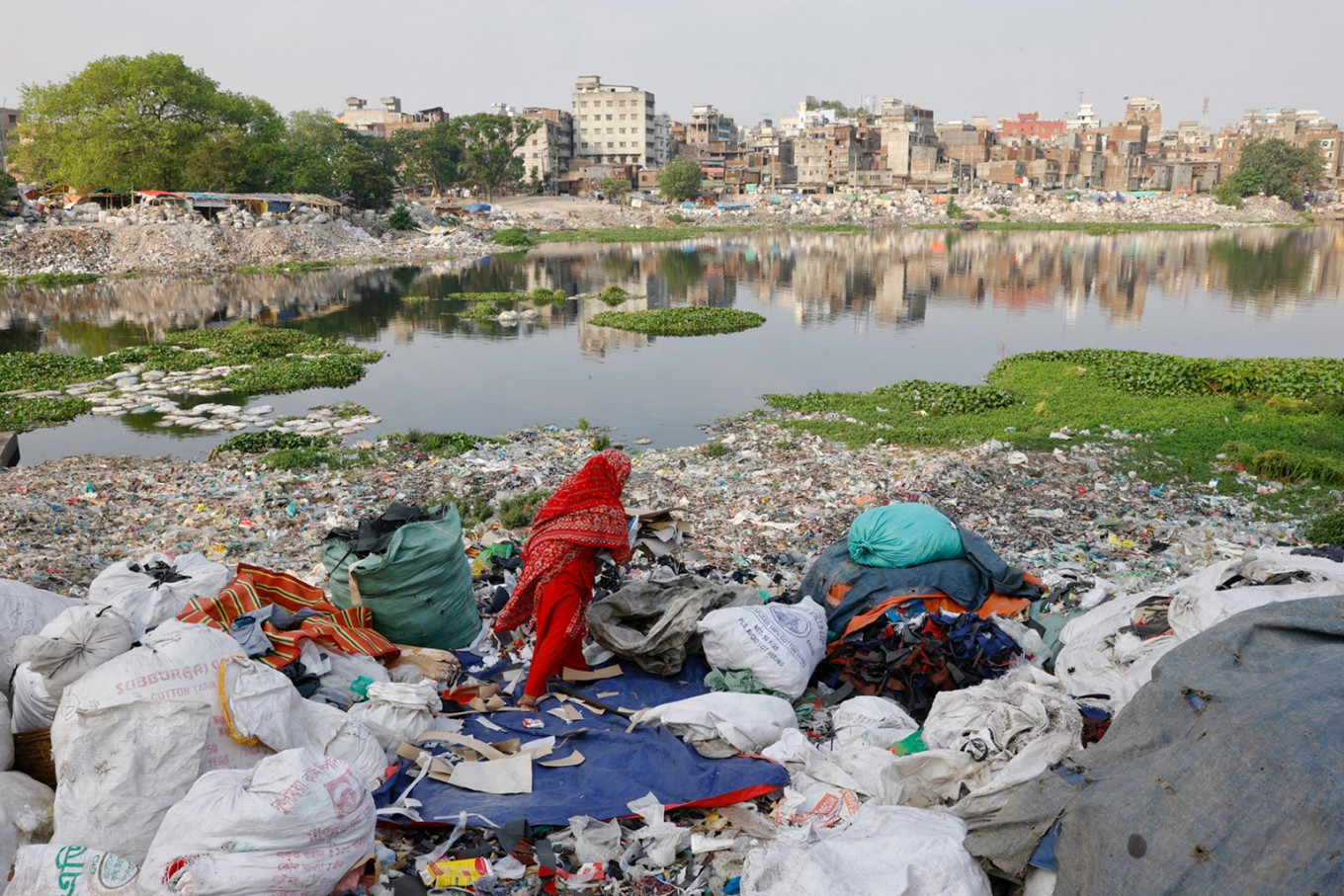Popular Reads
Top Results
Can't find what you're looking for?
View all search resultsPopular Reads
Top Results
Can't find what you're looking for?
View all search resultsTen states press US to take tougher stance in UN plastic treaty
The debate over whether a UN treaty should seek to limit the amount of plastic being made drove the last round of negotiations in Ottawa in April to overtime, with major plastic and petrochemical producers like Saudi Arabia and China blocking further negotiations around production caps.
Change text size
Gift Premium Articles
to Anyone
T
en states on Friday called on the United States government to go beyond backing production caps in a global plastic treaty, and support a pact that rejects "false" solutions like forms of recycling and protects communities burdened by plastic production.
In a letter sent ahead of the final round of negotiations on a UN treaty in Busan, South Korea, later this month, New York Attorney General Letitia James and the attorneys general of California, Pennsylvania, Massachusetts and others, urged the US delegation to go beyond its stated positions at the talks.
In August, the US said it would support a treaty at the talks known as INC-5 that would set global caps on plastic production, a break from its previous stance that it should be left to countries to decide.
"I applaud our nation’s delegation to INC-5 for their support of a global plastics treaty that will establish meaningful caps on plastic production," the letter said. "I encourage the delegation to heed our additional recommendations so we can build toward a more sustainable future."
The debate over whether a UN treaty should seek to limit the amount of plastic being made drove the last round of negotiations in Ottawa in April to overtime, with major plastic and petrochemical producers like Saudi Arabia and China blocking further negotiations around production caps. They argued that countries should focus on less contentious topics, such as plastic waste management.
The letter also called for the treaty to recognize the link between plastic pollution and climate change, as well as prioritize the development of a plastic reuse system.
In September, the attorney general of California Rob Bonta announced that he has sued Exxon Mobil for its role in exacerbating the plastic pollution crisis by misleading the public about the efficacy of recycling.











